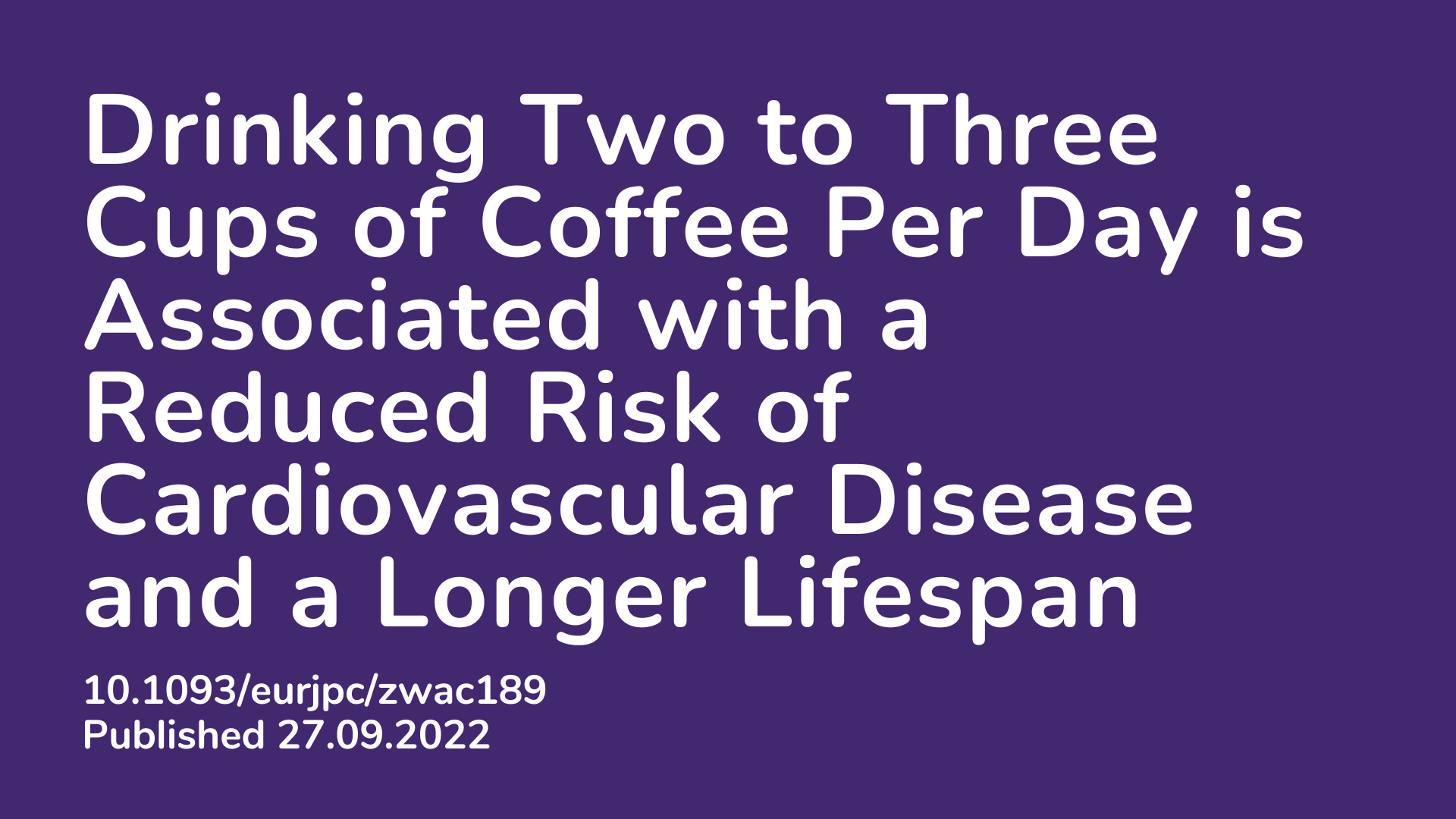Summary: The aim of this paper was to compare the role of coffee, as opposed to caffeine, in the role of cardiovascular disease and longevity. Previous research has mostly focused on caffeine as the protective constituent in coffee, however in this paper caffeinated, decaffeinated and instant coffee were analysed. This paper was a large observational study that recruited 449,563 participants aged between 40 and 69 years from the United Kingdom. The participants were questioned at baseline regarding their lifestyle risk factors and had a physical examination. They were then followed long term to assess their health outcomes and coffee intake. The main findings from the study showed that both caffeinated and decaffeinated coffee were associated with reductions in cardiovascular disease and increased someone’s lifespan. Caffeinated coffee was also associated with a reduction in arrhythmias including atrial fibrillation.
Abstract:
Aims: Epidemiological studies report the beneficial effects of habitual coffee consumption on incident arrhythmia, cardiovascular disease (CVD), and mortality. However, the impact of different coffee preparations on cardiovascular outcomes and survival is largely unknown. The aim of this study was to evaluate associations between coffee subtypes on incident outcomes, utilizing the UK Biobank. Methods and results: Coffee subtypes were defined as decaffeinated, ground, and instant, then divided into 0, <1, 1, 2–3, 4–5, and >5 cups/day, and compared with non-drinkers. Cardiovascular disease included coronary heart disease, cardiac failure, and ischaemic stroke. Cox regression modelling with hazard ratios (HRs) assessed associations with incident arrhythmia, CVD, and mortality. Outcomes were determined through ICD codes and death records. A total of 449 563 participants (median 58 years, 55.3% females) were followed over 12.5 ± 0.7 years. Ground and instant coffee consumption was associated with a significant reduction in arrhythmia at 1–5 cups/day but not for decaffeinated coffee. The lowest risk was 4–5 cups/day for ground coffee [HR 0.83, confidence interval (CI) 0.76–0.91, P < 0.0001] and 2–3 cups/day for instant coffee (HR 0.88, CI 0.85–0.92, P < 0.0001). All coffee subtypes were associated with a reduction in incident CVD (the lowest risk was 2–3 cups/day for decaffeinated, P = 0.0093; ground, P < 0.0001; and instant coffee, P < 0.0001) vs. non-drinkers. All-cause mortality was significantly reduced for all coffee subtypes, with the greatest risk reduction seen with 2–3 cups/day for decaffeinated (HR 0.86, CI 0.81–0.91, P < 0.0001); ground (HR 0.73, CI 0.69–0.78, P < 0.0001); and instant coffee (HR 0.89, CI 0.86–0.93, P < 0.0001). Conclusion: Decaffeinated, ground, and instant coffee, particularly at 2–3 cups/day, were associated with significant reductions in incident CVD and mortality. Ground and instant but not decaffeinated coffee was associated with reduced arrhythmia.
Article Publication Date: 27/9/2022
DOI: 10.1093/eurjpc/zwac189



